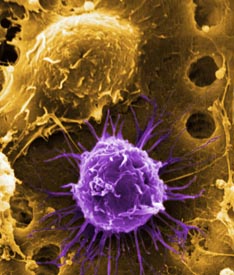An international conference entitled “Adult Stem Cells: Science and the Future of Man and Culture” is due to being tomorrow in the Vatican, lasting until 11 November. The event, which has been organised by the U.S. Stem for Life Foundation and by the Pontifical Council for Culture, has the aim of supporting research and increasing public awareness of treatment using adult stem cells. The conference will be attended by 350 scientists, religious figures, politicians, educators and industry representatives.
Today’s press conference was presented by Cardinal Gianfranco Ravasi, president of the Pontifical Council for Culture; Fr. Tomasz Trafny, head of the Council’s science department; Tommy G. Thompson, former U.S. Secretary of Health and Human Services, and Dr. Robin Smith, president of the Stem for Life Foundation and chief executive of NeoStem, the company which backs the Foundation.
Primary stem cells are of two kinds: embryonic and adult. When a stem cell divides, each new cell has the potential either to remain a stem cell or to become another type of cell with a more specialised function, such as a muscle cell or brain cell. Sources of adult stem cells have been found in the bone marrow, the blood and the liver. This offers the possibility of a renewable source of replacement cells and tissues to treat many diseases.
Dr. Smith explained how the use of adult stem cells avoids “the ethical dilemma posed by the use of embryonic stem cells. Adult stem cell research and therapy allows us to advance scientific knowledge while protecting every stage of existence”.
In the world today, 12.7 million people suffer from cancer, 346 million from diabetes and 583 million from autoimmune diseases. New therapy using adult stem cells can give them hope of improvement and cure. Such treatment has been used successfully in cases of multiple sclerosis and leukaemia, and “in the not too distant future we will be able to use adult stem cells to rebuild damaged tissue and repair organs such as the heart”, Dr. Smith said.
Fr. Trafny explained that the conference will seek both to publicise the achievements of medical science, and to reflect upon them from the perspective of the human sciences. “We wish to raise some important and sometimes provocative questions”, he said, “such as whether the Hippocratic oath should be extended to all the life sciences, because today it is not only doctors but also laboratory scientists who have power to intervene in all phases of human life”.
In closing, Fr. Trafny expressed his thanks for the support of the Pontifical Council for Health Pastoral Care and of the Pontifical Academy for Life.
VATICAN CITY, 8 NOV 2011 (VIS)





